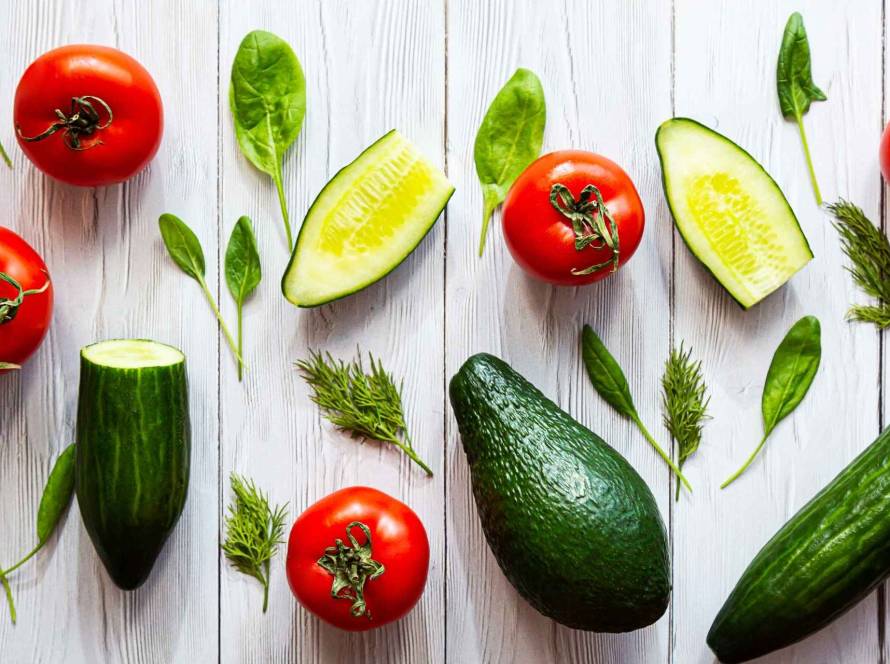Ultra-processed foods now make up more than 50% of dietary energy in high-income countries and their effects on lifespan have become a serious health concern. These products are loaded with added sugars, sodium and saturated fats while offering high energy density but little fiber.
Let’s get into the science behind these findings and understand what’s the lifespan impact of ultra-processed food. We’ll also share practical ways to protect your health.
What defines ultra-processed foods: the NOVA classification
The NOVA classification system stands out as the most accessible framework that categorizes foods based on their industrial processing extent and purpose. A team of international food scientists and researchers developed this system. They divided foods into four groups and ultra-processed foods emerged as the category that could reduce lifespan.
Key characteristics of ultra-processed foods
Ultra-processed foods result from extensive manufacturing techniques that change ingredients from their natural state. These products go through multiple industrial processes. The process starts when whole foods break down into substances like sugars, oils, proteins and starches. Scientists then chemically modify many of these extracted substances through hydrogenation or hydrolysis before putting them back together.
The biggest difference in ultra-processed items lies in their ingredients that you won’t find in home kitchens. High fructose corn syrup, hydrogenated oils, protein isolates, modified starches and interesterified fats make up these foods. They also contain many “cosmetic additives”, substances that make food taste better rather than add nutritional value:
- Flavor enhancers and artificial flavors;
- Coloring agents;
- Emulsifiers and emulsifying salts;
- Non sugar sweeteners;
- Thickeners, anti-foaming, bulking and gelling agents.
Companies design these products to maximize profits through cheap ingredients, long shelf-life and strong branding. These foods become irresistible and convenient, which often leads people to choose them over whole foods.
Common examples in modern diets
Ultra-processed foods now make up nearly 50% of daily caloric intake in many developed countries. These foods have become part of our daily lives:
- Carbonated soft drinks, energy drinks and sweetened beverages;
- Packaged snacks like chips and cookies;
- Breakfast cereals with added sugars;
- Ice cream and frozen desserts;
- Mass produced packaged breads;
- Margarines and spreads;
- Pre-prepared meals;
- Reconstituted meat products like sausages, hot dogs and chicken nuggets;
- Instant soups;
- Meal replacement products.
Many products labeled as “healthy” fall into this category too. Protein bars, artificially sweetened yogurts and some gluten free products often surprise consumers. Without careful attention, avoiding these items becomes a challenge.
Distinguishing processed from ultra-processed
Understanding the difference between processed and ultra-processed foods helps health conscious people make better choices. NOVA’s system puts processed foods (Group 3) in a category that includes simple products made by adding sugar, oil and/or salt to minimally processed foods. Fresh bread, cheese, canned vegetables and cured meats that keep most of their nutrients fall into this group.
Ultra-processed foods (Group 4) contain multiple additives and industrially derived ingredients. The quickest way to spot ultra-processed items is to read the ingredient list. If you see substances never used in home cooking or additives meant just to enhance taste and appearance, you’re likely looking at an ultra-processed food.
How ultra-processed foods directly impact mortality rates
Recent large scale studies have shown a clear link between eating ultra-processed foods and higher death rates. The data reveals how our modern eating habits might be cutting our lives short.
Findings from the SUN cohort study
The Seguimiento Universidad de Navarra (SUN) cohort study stands as one of the most detailed looks into ultra-processed foods and mortality. Scientists tracked nearly 20,000 Spanish university graduates for more than two decades and found a dramatic rise in death risk among people who ate lots of ultra-processed foods.
People who ate the most ultra-processed foods had a 62% higher hazard of dying from any cause compared to those who ate the least. The numbers get even more concerning. Each extra daily serving of ultra-processed food raised the death risk by 18%. Scientists recorded 335 deaths during roughly 200,000 person years of follow up and saw a clear pattern, the more ultra-processed food people ate, the higher their risk of dying.
These results held strong even after scientists accounted for things like age, wealth and lifestyle habits.
NutriNet-Santé study revelations
The French NutriNet-Santé study gave more proof of this dangerous link. Scientists looked at about 45,000 adults aged 45 and older and found that eating more ultra-processed foods led to earlier death from various causes, especially cancer and heart disease.
Scientists pointed out several reasons for this connection:
- Ultra-processed foods have fewer nutrients than natural foods;
- These foods pack more sugar, salt and saturated fat;
- The additives in these products can lead to long term health problems.
This builds on earlier SUN study findings that connected ultra-processed foods to higher risks of weight gain and high blood pressure.
NHANES data on ultra-processed foods and death risk
U.S. data from the National Health and Nutrition Examination Survey (NHANES) shows the most troubling results, given how many ultra-processed foods Americans eat. A key study using NHANES data followed people for about 19 years. It showed that regular ultra-processed food eaters had a 31% higher risk of dying from any cause, even after adjusting for other factors.
The detailed analysis of multiple studies found that death risk goes up 15% for every 10% increase in daily ultra-processed food calories. This straight line relationship between eating these foods and death risk points to a direct cause and effect connection.
Biological mechanisms behind accelerated aging
Recent research has uncovered the exact biological mechanisms that make ultra-processed foods speed up aging in our cells. Scientists have found four main ways these foods can actually shorten our lives.
Telomere shortening and cellular aging
Telomeres protect the ends of our chromosomes and are vital markers of biological aging. Our telomeres naturally get shorter each time cells divide. Research shows that eating ultra-processed foods speeds up this process by a lot. The Seguimiento Universidad de Navarra (SUN) Project found that people who ate the most ultra-processed foods had nearly double the odds of having shortened telomeres compared to those who ate the least.
People who ate more than three servings daily faced much higher risks of telomere shortening. This early shortening makes cells age faster than they should and leads to more age related diseases.
Oxidative stress and DNA damage
Ultra-processed foods cause oxidative stress when cells get damaged by too many free radicals. A study with 139 healthy teens showed that eating more ultra-processed foods led to much higher urinary levels of 8-hydroxy-2′-deoxyguanosine (8-OHdG), which signals DNA damage. This link stayed strong even after considering overall diet quality, which suggests that something beyond nutrition in these foods damages DNA.
The damage happens because:
- Food additives reduce natural antioxidants;
- High temperature processing creates compounds like acrylamides;
- Manufacturing creates advanced glycation end products;
- Maillard reaction products harm cell integrity.
The industrial processing of food seems to age our cells directly, beyond just poor nutrition.
Chronic inflammation pathways
Ultra-processed foods create lasting low grade inflammation throughout the body. A detailed review showed these foods increase inflammatory markers that lead to heart disease, obesity and insulin resistance. This ongoing inflammation hurts autophagy, our cells cleanup system that helps us live longer, and changes our DNA through methylation, which weakens our immune system.
A 2024 neural network study revealed that every 10% increase in ultra-processed food consumption aged people about 2.4 months faster than their actual age. These foods create conditions where cells age faster than they should.
Gut microbiome disruption
The biggest impact of ultra-processed foods might be on our gut microbiome, the trillions of bacteria that keep us healthy. Studies show these foods affect gut microbiota composition differently in women and men.
Ultra-processed diets lack fiber, which reduces short chain fatty acids that protect our gut barrier and control immune responses. It has been shown that common emulsifiers in these foods weaken the protective mucus in our gut, letting bacteria and inflammatory molecules enter our bloodstream. This “leaky gut” creates body wide inflammation that speeds up aging throughout our system.
Specific health conditions linked to ultra-processed foods
Ultra-processed foods not only increase death rates but also lead to specific health issues that affect how long and well people live.
Cardiovascular disease progression
People who eat lots of ultra-processed foods face much higher risks of heart disease. Research shows these high consumers have a 50% higher chance of dying from cardiovascular problems. Processed meats and sugary drinks relate most strongly to heart conditions. Reducing these specific items should be your priority to protect your heart.
Metabolic disorders and diabetes
The link between ultra-processed foods and metabolic problems raises serious concerns. According to studies, the risk of type 2 diabetes goes up by 12% for each 10% increase in UPF consumption. A Brazilian study that followed people for 2 years revealed that those who ate the most UPFs had a 33% higher chance of developing metabolic syndrome.
Cancer risk elevation
Studies show that ultra-processed foods lift cancer risk in several ways. Research indicates high UPF consumption relates to a higher overall cancer risk (12% increase), especially for breast cancer. Animal based ultra-processed products and artificially sweetened drinks show the strongest connections.
Cognitive decline and brain health
Brain health findings paint a worrying picture. A study in JAMA Neurology with nearly 11,000 participants showed that middle aged adults who ate the most ultra-processed foods had up to 28% faster mental decline than those who ate the least. This faster decline affected both overall thinking ability and decision making skills. The connection stayed strong even after 8 years of follow up and after considering other risk factors. This suggests that eating fewer ultra-processed foods could help protect your brain as you age.
Ultra-processed foods harm both heart health and brain function, the evidence is clear. Quick action is vital to protect your long term health. You can start by checking food labels, understanding processing levels and choosing whole food alternatives.
Supplements might help a little, but they can’t cancel out what ultra-processed foods do to your body. Reducing these foods works best when combined with eating more nutrient rich, minimally processed options. These changes may be tough at first, but they definitely lead to a longer, healthier life.


